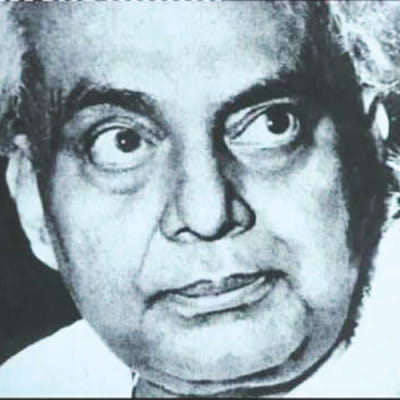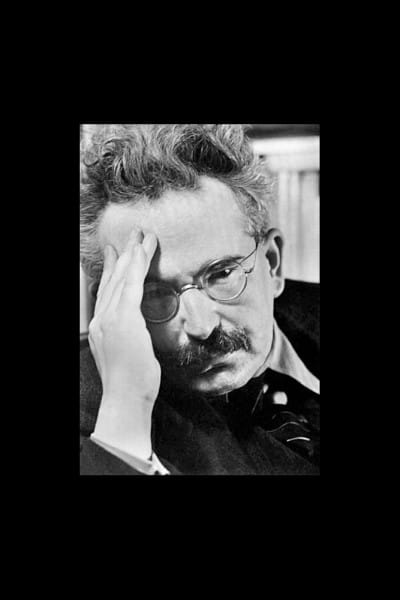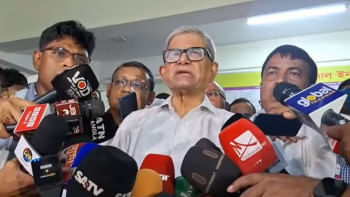Reading Nazrul Islam after Walter Benjamin

'Early in his life, Kazi Nazrul Islam, the most notable Muslim poet of modern Bengal, edited and published a weekly Bengali journal named Dhumketu, the Comet. The name was symbolical of his whole career. He made his first appearance on the firmament of Bengali literature like a comet and at once captured the admiration of all lovers of poetry, and after a brilliant but short career as a poet made his exit, also like a comet. His poems bear the stamp of a distinct and vigorous personality and he sounded a note not heard of before in the long history of Bengali literature. He was hailed by Hindus and Muslims alike.' This is how a lachrymose sketch by Prabodh-Chandra Sen in the Vishvabharati Quarterly put it in 1958. It is rather, as we will see shortly, as much condescension as understatement.
I
Nazrul Islam, all the same, faced condemnation and stiff resistance from all quarters, Brits, Hindus and Muslims alike. Some wiseacres happened also to be admirers of Fascism, if not outright Fascists. One of these tooth and nail colonial fighters survived long enough to reminisce, to carry it kit and caboodle, till the 1980s. 'I knew Bengali literature up to 1920 very well,' well-known colonial thinker Nirad C. Chaudhuri writes in 1987, 'but had ceased to keep myself abreast of the latest writings because, on the one hand, I had developed other interests and on the other had a feeling that the Bengali literary effort was reaching the point of exhaustion.' '[Rabindranath] Tagore and Sarat Chandra Chatterji dominated the Bengali literary scene,' Chaudhuri continues, 'but to me it seemed even they had touched the limits of their creative achievement. And so far as I read anything by younger writers, they seemed to be both crude and shallow as a rule. I became deeply suspicious of their manner as well as matter.' One of these younger writers the embryonic colonial thinker developed an antipathy for was, in his own words, 'a Muslim named Kazi Nazrul Islam, who had served in the 49th Bengali Regiment in Mesopotamia in the first World War'.
'This regiment,' Chaudhuri free-associates, 'was not a success and was disbanded after the war, but Nazrul Islam had reached the rank of Havildar in it, which was equivalent to being a sergeant. This made him inclined to make use of some cheap military claptrap in his poems, which were accepted then as the expression of a new revolutionary spirit. Through all that he became something of a rage. But in spite of having a good deal of untaught skill in the use of language and metre, to me seemed very superficial, indisciplined, and frothy. As if that was not enough to prejudice me against him, I was repelled by his references to torpedoes and mines as symbols of the revolutionary spirit.'
Chaudhuri's vituperation hardly knows a bound. 'I cannot describe the contempt I felt,' admits he, 'when I saw a procession of Muslims marching under my windows at 41 Mirzapore Street, chanting one of Nazrul's poems on the victory of Mustafa Kemal in 1922. It was a long rigmarole, which certainly Kemal, if he ever came to read it, would have trampled under foot, and it had the refrain: "Hurro, ho, hurro, ho, [Kamal,] tu-ne kamal kia, Bhai!" (Hurrah, hurrah, thou hast pulled it off splendidly, O brother!)' 'This is not Bengali but Urdu—,' exclaims our little fascist, only to add, 'and this was consistent with the Bengali habit of employing English or Urdu and Hindi when in a passion.' 'In the poem the use of the word Kamal (which meant perfection or something splendid),' the reminiscing man reminds us, 'was a pun on Kemal's name.'
I am afraid I owe the reader a note here on introducing Nirad C. Chaudhuri as a sometime fascist. 'I had outgrown even the real Bengali revolutionary spirit of the early days of the nationalist movement,' admits Chaudhuri right after a contemptuous glance cast at references to 'cheap military claptrap' a la Nazrul Islam, only to add, 'and was not likely to be impressed by the exhibition of it in a weak and spurious form.'
But who are these real Bengali revolutionaries that he once admired, anyway? They were, socially speaking, 'young men of the higher class' who 'when insulted by men of lower classes often felt maddened and became murderers themselves'. Chaudhuri narrates a rural incident very briefly: 'The brother-in-law of a first cousin of mine was one day insulted by a man who may have been his tenant. He nursed his grievance and when a month or so later he heard that the same man had come to a feast in another house in the village, he went there and killed the offender with a spear as the man was eating.' 'The young Bengali terrorists,' laments Chaudhuri, 'only carried this social tradition into the political sphere, and as long as they remained revolutionaries they were also like possessed men.' It is this continuity, 'this proneness to violence,' which landed them on fascism's lap, or to 'worship for authoritarianism in government,' he thinks.
'All my life,' Chaudhuri recalls, 'I have been hearing the exclamation from them: "We want a dictator." Thus as soon as Mussolini emerged in 1922, Bengali intellectuals showed themselves as his great admirers and as equal admirers of Fascism.' 'I heard Bengalis educated at Oxford, Cambridge and London,' testifies the old man, 'speak with enthusiasm of the march on Rome.' 'In the early Thirties,' Chaudhuri remembers, 'a great Bengali scholar, and one of my most respected friends, told me how uplifted above the commonplace he had felt when he had heard Italians on their way to Eritrea in a ship which was passing his near the Suez Canal, shouting: "Il Duce, Il Duce." What a contrast that was, he said, to the womanizing Frenchmen on the streets of Paris.'
This admiration and enthusiasm for Mussolini and his fascists was eventually carried over to Hitler and German Fascism,' but in a more exalted form,' according to Chaudhuri. 'Even in 1929 or 1930,' he testifies, 'I published a story in Bengali in Prabashi, which was entitled 'Hilterite', and written by a Bengali who had a German doctorate. It was written in a very crudely theatrical style. The enthusiasm for Hitler grew, and at the time we did not know what Hitler's opinion of British rule in India was, because we had only the bowdlerized translation into English of Mein Kampf. But my doctor brother who returned from Germany at the end of 1931 had the German edition with him, and he told me about that. I got the passages translated by him, and published them in The Modern Review.'
The German breakthrough in the region of Sedan in 1940 stunned Chaudhuri, and says he, he was dismayed. His fellow-Bengalis, however, were not. They were, 'naturally', exulted and some of their exultation 'found rather amusing expression' in such absurdities as this. 'Many well-educated Bengalis', according to Chaudhuri, 'believed or liked to believe that Hitler was some sort of an epic Hindu hero, a great Aryan.' 'So one of them said to me,' as Chaudhuri confides in, 'Do you know, Nirad Babu, that German tanks fly the Kapidvaja?' He excels in erudition: 'Now, this flag, whose name translated means the 'Monkey Banner', was flown over his chariot by the Mahabharata hero Arjuna when fighting the battle of Kurukshetra. Those who had personal grievance against the British rule thought of Hitler almost as God. The father of one of the Chittagong revolutionaries who had been sentenced to transportation for life in the Andamans, told me: "Hitler is no ordinary mortal, he is the incarnation of Vishnu." 'Absurd as these ideas were,' as this memoirist notes, 'they sprang from a real sense of oneness with the Germans.'

II
I indulge in these rather long extracts not for nothing; they provide good evidence of raging Fascism in Bengal. Incidentally, it is among these Fascists that Nazrul Islam meets some of his deadliest foes, not excluding Nirad C. Chaudhuri who in turn attributes it to Mohitlal Majumdar, one of his teachers.
Fascism, note you, appears here in the name of 'tradition'. One more extract says it all: 'But I did not feel any deep concern. That was roused in me by Mohit Babu, who in spite of being one of the young writers, with his most mature work still before him, showed a violent dislike of any kind of writing which was not affiliated with the established tradition. His own individuality was only an extension of that. The tradition, itself the creation of fifty years of effort and innovation, had by 1920 reached a state of fixity which allowed only variations to be played on it, as on the main theme of a musical composition. Mohit Babu felt very strongly in literary matters, for Bengali literature was his life. Apart from that he was also a Bengali Hindu conservative of the school of Bankim Chandra Chatterji and Swami Vivekananda.'
Mohitlal Majumdar, 'the literary theorist' of the Calcutta fascist group, who happened also to be their oldest member, was looked upon as their leader. 'But in his prose writings Mohit Babu showed no humour,' says Chaudhuri. 'For that,' he adds, 'we depended principally on Sajani [Kanta] Das, although he was the youngest among us.' 'He spread the mainsail for our ship and became our mainstay for appealing to the largest element of our readers, because he had to an exceptional degree the aptitude for satire which was one of the oldest and strongest strains in the Bengali literary genius. Its humour was basically malicious.' The malicious, ill-reputed Sanibarer Chiti, first a weekly, later a monthly, became their organ. It thrived under the aegis of respectable journals like Prabashi and The Modern Review. Rabindranath Tagore often blessed them.
In 1922, the year of Nazrul Islam's first book of poems, also saw the publication of a Bengali weekly named Dhumketu with the poet as both its editor and publisher which eventually landed him in jail by year-end. In an early Dhumketu editorial Nazrul Islam came out for an uncompromising and uncompromised independence of India. He was for complete sovereignty, not for some negotiated Swaraj, or compromised self-rule, he announced. This he put forward not as a nationalist of sorts either. He found himself in sympathy with such groups as Peasants and Workers Party and other socialist congregations. In most editorials and other pieces written in the 1920s Nazrul Islam exuded a determination to bring about a complete revolution not just in political affairs, but in all spheres of the social order. His pre-eminent objective was to tear asunder all chains that circumscribe life. It is not chance but this structure of thought brought him face to face with the fascists.
III
For an endnote we might as well ask: what is Fascism, anyway? What alternative, if any, out there? These two questions were Walter Benjamin's also. In an essay dating from 1935, better known as 'The Work of Art in the Age of Mechanical Reproduction' (or, alternatively, the Age of Technological Reproducibility)', Benjamin poses his most unforgettable question concerning Fascism and Communism. He contrasts the two in terms of an analysis of certain transformations which inaugurate what he calls 'the age of mechanical reproduction' of artworks. 'These transformations,' as the commentator Alexander García Düttmann takes it, 'consist in the destruction of the unity and authenticity attributed to traditional art; they affect any relation to tradition insofar as, according to Benjamin, the concept of tradition is itself essentially linked to the idea of the work of art, to the values which attach themselves to it, and which, without the idea, would never have been able to take on a stable and recognizable form.' This phenomenon is more popularly known as the 'decline of aura'.
In an explicit allusion to Marx's theory of history that, in the era of social revolution, changes in the economic foundation lead sooner or later to the transformation of the whole immense superstructure, Benjamin claims, on the contrary, that in the age of mechanical reproduction the superstructure no longer lags behind the infrastructure. If this is a fact, art (and culture at large) no longer submit to a determination that assigns them an ideological function. In other words, the work of art is no more contained in the world of ideology. This fact allows us to pose the question of Fascism anew. As Alexander García Düttmann writes, 'Fascism, for Benjamin, is a renewal of ideology; it checks the destructive process to which it owes its existence. In other words, it reintroduces a dissymmetry while presupposing, as its condition of possibility, a development which results in the abolition of dissymmetrical relation between infrastructure and superstructure.' Fascism insists on an certain concepts collected under that master signifier 'tradition', as we have seen with reference to, for instance, Mohitlal Majumdar, that literary leader of the colonial school of fascism.
Walter Benjamin opens his seminal work by way of rejecting 'a number of outmoded concepts, such as creativity and genius, eternal value and mystery, concepts whose uncontrolled (and at present almost uncontrollable) application would lead to a processing of data in the fascist sense.' As García Düttmann notes, in the first (of three extant) version Benjamin adds 'style, form, content', but does not mention 'mystery'. 'It would be wrong to believe,' as García Düttmann warns, 'that it is here a question of avoiding particular traditional or outmoded concepts which could no longer be used because they already and inevitably fall into a usage which escapes control. There are no good and no bad traditional concepts: it is the tradition as such that is at stake.'
Nazrul Islam's poetic oeuvre, in this precise sense, is also a rejection of 'creativity and genius, eternal value and mystery,' i.e. of moribund tradition. To wit, in one of his early poems, dating from 1925, namely 'Amar Koiphiot' (My Apology), he precisely anticipates Benjamin's critique of Fascism in the Artwork essay. Unmistakably, this anticipation leads by no less than a decade.
I am a poet for the day, brother, and no prophet to be.
Call me a poet or no poet whatever, no difference to me!
O, your place in times to come is
For sure, say some, with poets who would be!
Where is your eternal value like that flowing from hands of Rabi?
Blame me as you like it, but I must keep singing my morning's melody!
It is consequently not simply a question of critique of ideology as such; it is rather the question of a critique of technology as ideology, or of representation as necessary misrepresentation. To illustrate, in the age of mechanical reproduction, the age in which cinematographic reproduction programs a 'new selection', only 'the star' and 'the dictator' remain in the end. The alternative is not the 'theatre' or 'parliament' respectively. They derive from the same anachronism: neither can escape the crisis of representation, traditional representation.
Fascism's answer to the crisis—to which it owes its own becoming—is aestheticization of politics, re-invoking tradition that is, in the name of nation, race, faith and what have you. Communism, synonymous with popular sovereignty, i.e. non-representational, direct democracy is politicization of aesthetics, or invocation of an inventive and innovative aesthetics that never rusts, never grows moribund. We run out of space here and conclude by recalling that Fascist threat lies not just in its pitting against destruction of tradition alone. It invokes ideology again and again, claimed often as the return of the eternal, though it in fact masks a return of the repressed.
Benjamin analyzed photography and cinematography as the most representative and most efficacious of reproductive techniques. Nazrul Islam did indeed invoke the question of poetry as gesture, both inventive and innovative. He invoked it as a question of 'the real', in the psychoanalytic sense. If, as Benjamin finds it, politics as such is a function of the technology of mechanical reproduction (exposure and control of the body that photography and film make possible), then it is possible to imagine the politics of art as exemplary of all politics.
References
1. Walter Benjamin, The Work of Art in the Age of Its Technological Reproducibility and Other Writings on Media, trans., Edmund Jephcott et al., eds., Michael W. Jennings et al. (Cambridge, MA: Harvard University Press, 2008), 19-55.
2. - 'The Work of Art in the Age of Mechanical Reproduction,' Illuminations, trans. Harry Zohn (London: Fontana Press, 1992), 211-244.
3. Nirad C. Chaudhuri, Thy Hand, Great Anarch! India: 1921-1952 (London: Hogarth Press, 1987), 148, 293, 567.
4. Alexander García Düttmann, 'Tradition and Destruction: Benjamin's Politics of Language,' trans., Debbie Keates, Modern Language Notes, 106:3 (April 1991), 528-554.
5. Kazi Nazrul Islam, 'Amar Koiphiot,' in Nazrul Racanabali, vol. 2, ed., Abdul Kadir (Dhaka: Central Board for the Development of Bengali, 1967), pp. 41-44.
6. - Poèmes choisis, trad., Jahangir Tareque (Dhaka: Nazrul Institute, 2000), 96-103.
7. Prabodh-Chandra Sen, 'Kazi Nazrul Islam: The Muslim Poet of Bengal,' Visvabharati Quarterly, 24 (Summer 1958), 52-68.
The writer is Professor at General Education Department, ULAB.

 For all latest news, follow The Daily Star's Google News channel.
For all latest news, follow The Daily Star's Google News channel. 



Comments